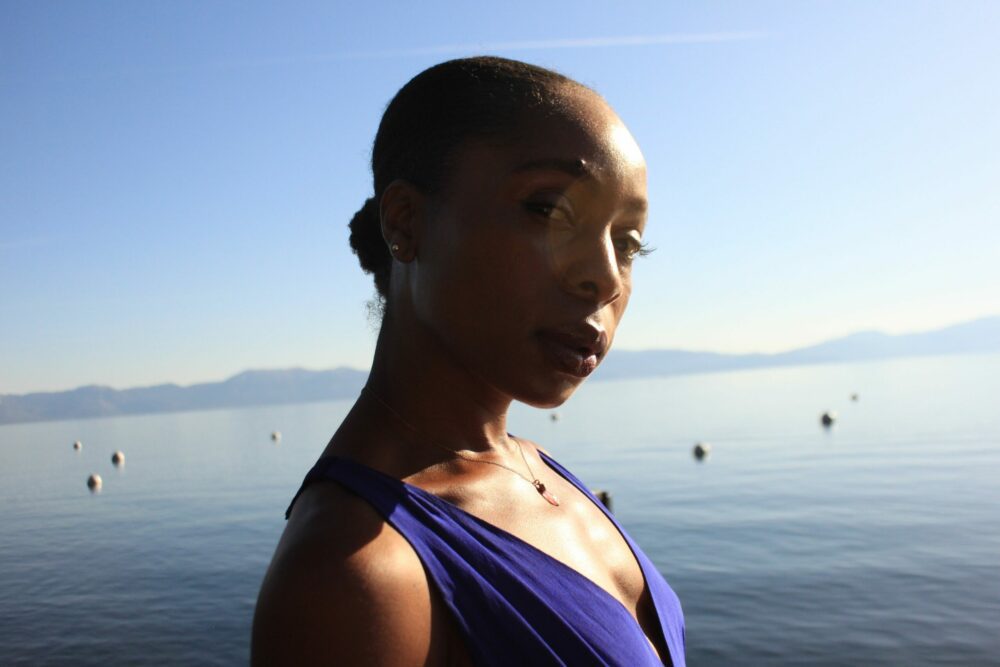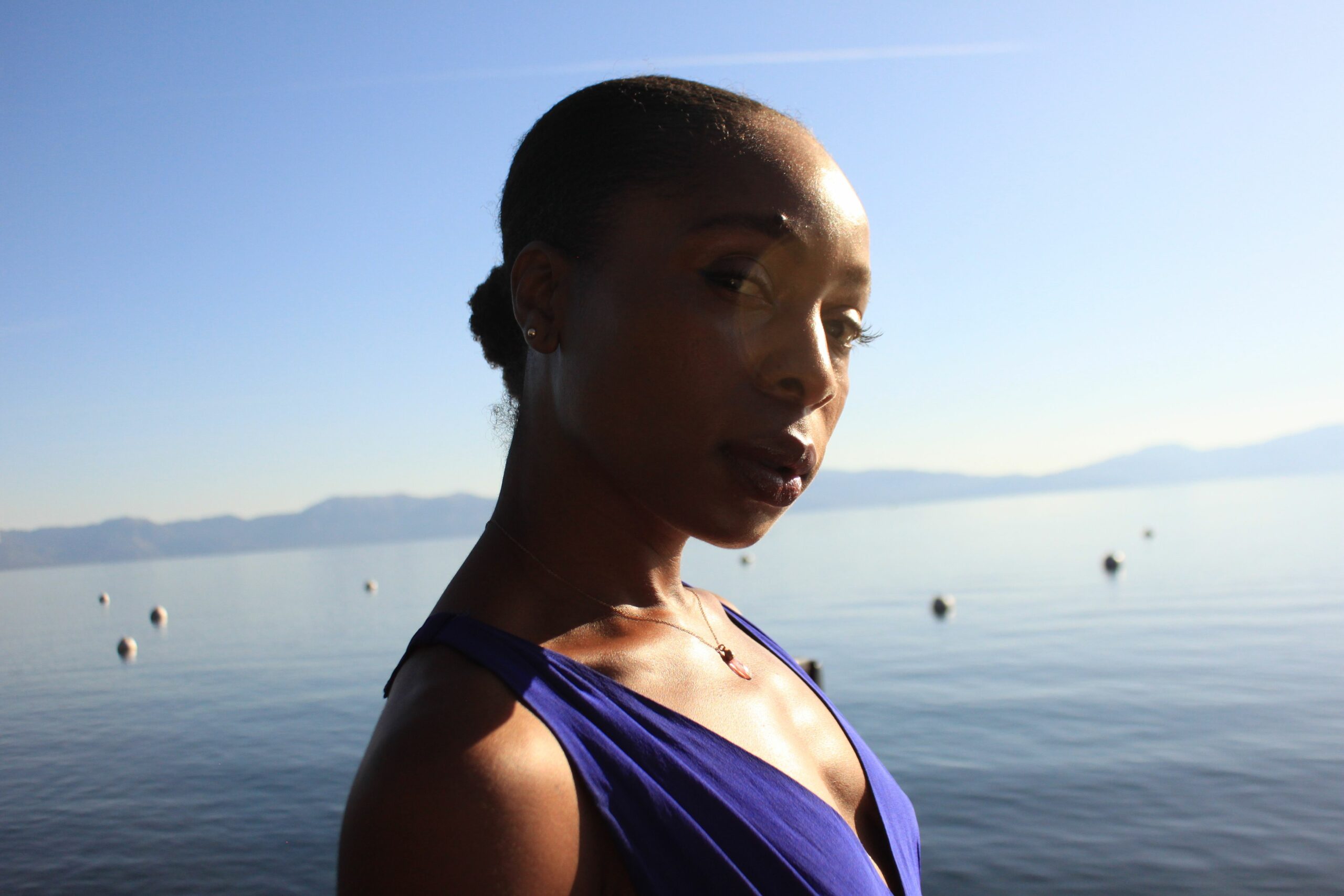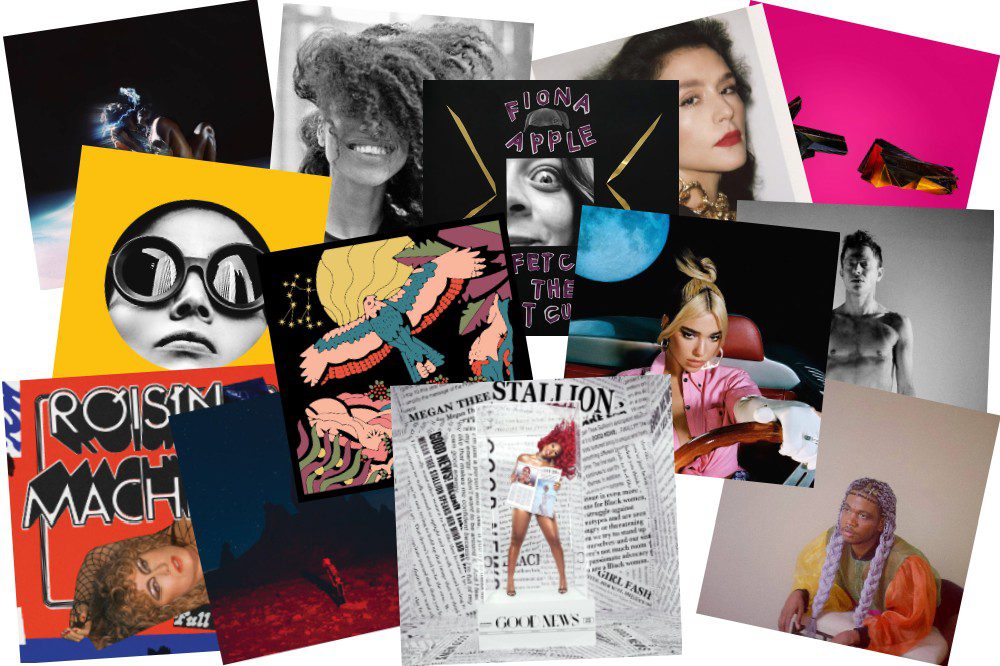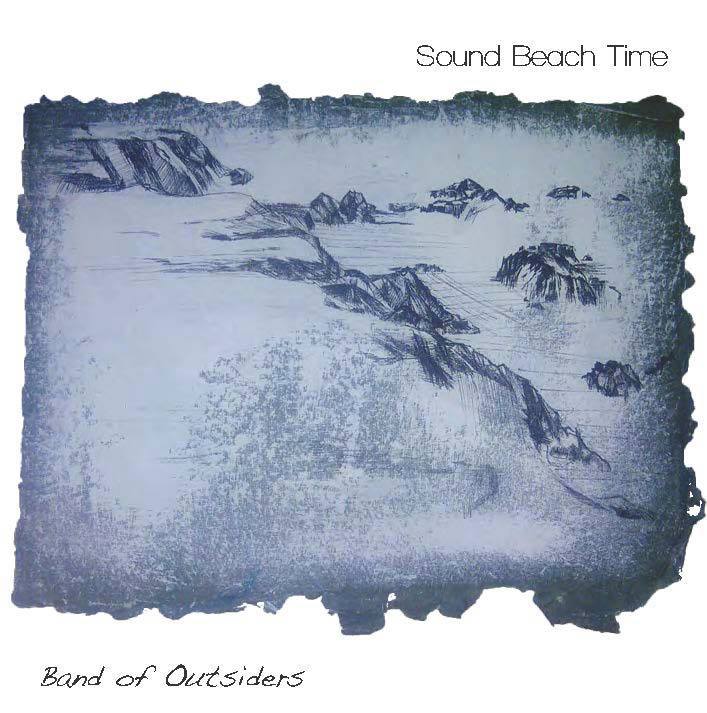Mary Akpa Offers Love Letter to the African Diaspora with “A hurum gi n’anya”


On YouTube, Nigerian-born, California-raised, and Brooklyn-based singer-songwriter Mary Akpa leads a virtual language lesson, teaching her community how to say the name of her latest single “A hurum gi n’anya.” Those unfamiliar with Akpa’s native Nigerian language Igbo may struggle with the title at first, but when Akpa sings the words, they slip fluidly from her lips, as easy as water from a glass.
“I feel such reverence towards music for that reason,” Akpa says on a Skype call with Audiofemme. “You don’t have to understand what someone’s saying, but you can feel something. You may not be able to speak a language, but you can sing it. You can catch it so much faster. Music just has a power. It’s a spiritual or magical force or something.” There’s an Igbo term for kind of power, too: iko nsi oma.
Akpa had originally intended to translate the title to English; she worried the phrase would alienate listeners if they couldn’t speak Igbo. But the meaning behind the phrase wouldn’t leave her. “When I think about Igbo and the etymology of the Igbo language and ‘A hurum gi n’anya’ specifically, it actually means more like, ‘I see you eye to eye, and I carry you in my [heart],'” she explains. “It’s like a deeper kind of love. And when I started learning about that, I’m like, oh, that’s why ‘I love you’ always felt basic to me.”
“Don’t look away/The more I see, the more I wanna see you/Never thought I’d find beauty in the mole/Above the right side of your face/These little scars are roadmaps/Cheat codes/Only you and I know/The more I’m letting go, it’s you I wanna know,” Akpa sings in a gently beckoning tone. The line was freestyled during the writing process and Akpa was certain she’d change it during production, until a friend asked why she wanted to do so. “I didn’t realize I was betraying myself that much,” Akpa says, remembering the shame of the moment, realizing how much she disliked this very intimate part of herself. The song became a personal affirmation: “Mary, you need to see yourself. Remember to love yourself first.”
“A hurum gi n’anya” also serves as a love letter to the Black community in the U.S. that she grew up with. “There’s this beautiful awakening that I’m seeing across the diaspora, where Black people are really coming closer to African culture and traditions and really beginning to see themselves reflected – and it’s like, ‘Yes, it’s yours,'” Akpa explains. “And so I’m like, well maybe this is an opportunity for me to create some bridge. It’s the reason I wanted it to be mostly Black Americans in the video – because I wanted to sort of say, ‘Hey, this is as much your culture as it is mine.'”
To some extent, Akpa has always felt the tension of being stuck between two worlds, familiar with the oppression of growing up in a low-income, over-policed community, but also teased about her ties to Nigeria by those who mainly saw Africans depicted negatively. “I just remember seeing commercials and things about Africans and how Africans were portrayed, with flies on their face, impoverished, with animals, and just looking very not the way Africans are in normal life,” she says. Her family’s own emigration was not driven by need; her mother left a successful printing business behind to bring Akpa, aged two-and-a half, and her siblings to California at her biological father’s insistence (he was a pastor, allowed entry to do missionary work in the States).
“My mom wasn’t too keen on coming to the U.S…. So she had a really interesting love/hate relationship with America for a while,” Akpa recalls. “And I say that because I think it really impacted the way that she immersed us in Nigerian culture. We listened to Nigerian music most of the time, almost like in place of nostalgia. She was missing home.”
Akpa and her four siblings grew up eating Nigerian food, lingering on long-distance calls to their grandparents, and listening to King Sunny Adé, Jùjú music, Fela Kuti, and the Lijadu Sisters. Contemporary Christian music was also a staple due to her mother’s religious fervor, and Dolly Parton made the Akpa Top 40, too. “Apparently in the ’70s, country music was big in Nigeria,” Akpa says with a laugh. She sang in the church choir and made up little songs she would sing at home, eventually studying ethnomusicology and jazz at UCLA. Though she toured domestically and internationally and independently released her Brave EP in 2012 and followed it with 2016’s Unseen, she never felt like the term “songwriter” applied to her.
This was partly because Akpa’s writing process always begins with a guitar melody, which she dictates vocally to her collaborators in the studio. “I just found out that my grandfather, my mom’s dad, played guitar and had his own musical gifts,” Akpa says. “I’m carrying his baton. I felt that so deeply because I hear guitar melodies first – not even vocal melodies – but I can’t play them.”
Akpa has only begun to acknowledge recently that, instrument to instrument, she’s the one leading the creation of each layer, sculpting the sounds with her voice and listening closely to musicians repeat verbatim. The challenge of working in a male-dominated industry has been that her creative ideas – and the way she expresses them – often get bogged down by technical suggestions, even from those who are simply there to “hit record.” This is ultimately distracting for Akpa, who says, “I need to be able to get my thoughts out without questions.” The musicians she works with in Nigeria, while just as technically versed, can pick up on the sounds and moods she wants to convey without putting her on the spot about it, which is why she recorded “A hurum gi n’anya” there, along with several other tracks that will comprise her forthcoming LP Nnoo, expected this spring.
Nnoo represents a full-circle moment creatively. “I’m just now, as in last year, considering myself a real songwriter. I always felt like I’m aspiring to be a great songwriter,” Akpa confesses. “I felt very insecure because I don’t play instruments well. I’m still trying to teach myself rhythm guitar and it doesn’t come easy to me.” The album is a culmination of many trips Akpa has taken to Nigeria in her adulthood, the first of which was with her sister, who was in law school at the time and working with a Nigerian organization. It was an experience she’s never forgotten.
“When I went home for the first time, I distinctly remember feeling like [I was] remembering parts of myself that I’d forgotten. It was weird – it was just like ‘Oh. Right. This is why I do this,’ and just sort of seeing myself reflected so much,” Akpa says. “Nigerians are a very intense people. I always felt like I was a lot, like, why am I so expressive? When I went to Nigeria I was like, oh, okay. I understood myself for the first time.”
Each time Akpa stepped on a plane and flew back home, the reality of her experience as a Black woman became crystallized; in the U.S., she says she “felt the oppression” even in subtle ways, like how Black New Yorkers shift slightly on the subway when a police officer enters the train car. “It does infiltrate every aspect of life when you’re a Black person. People do not recognize that’s such a reality. I think it was going home that took me outside of that, to feel how unfair that reality is,” Akpa says. In Nigeria, on the other hand, she says she “didn’t feel like I had to watch what I was doing all the time. I felt free. I felt like I could just exist for the first time in my life.”
This was part of what inspired last year’s stand-alone single “Black Body,” an opus on the Black experience in America set atop Akpa’s signature guitar sounds; it’s a striking piece that showcases her unique ability to weave thoughts together, speaking almost in the style of a beat poet, while instruments play in and out of frame. The trumpet acts as an echo, sweetly repeating her as she sings, “You call me angry/Say I pull the race card/Shaming me with stigma/But you take it too far.”
She had recorded the song in 2015 but shelved it, and it looked like the same would happen to Nnoo; despite feeling inspired and in charge during the recording of the album, Akpa was flooded with doubts afterward – those old feelings of being caught between two worlds resurfaced, and she was worried the no one else would be able to relate to her songs, or even understand where she was coming from. She had left New York City and returned to California, closing the door on the album to find clarity.
But in February 2020, after 25-year old Ahmaud Arbery was murdered for “jogging while Black,” Akpa suddenly found her email full of requests, asking about “Black Body.” It wasn’t long before she was digging back into her music files, revisiting “A hurum gi n’anya” and the rest of Nnoo.
Listening back, Akpa realized that “A hurum gi n’anya” held the message she needed to hear most to push through her self-doubt. “I’m such a lover. I love love. And I’m always like ‘I wanna show you all this love,’ but I wasn’t showing myself love,” she says. “Even just thinking I wasn’t a good songwriter. Even just not acknowledging myself as a producer. All the ways I wasn’t showing up for myself because I wasn’t really giving myself the love that I try to give other people. And that was a huge wake up call for me.” As she prepares to release Nnoo, she says the album “brought me closer to myself… it showed me me.”
Akpa brought back more than music from her trips to Nigeria. In 2015, she met up with her mother, who was also visiting Nigeria – the first time they’d been there together since Akpa was a toddler. They walked the same path her mother walked while in labor with her, thirty minutes from her business (where she had just closed another deal) to the midwives’ compound where she was born. They visited her mother’s old school and met a group of girls who would alter Akpa’s life permanently. While her mother spoke with the principal, Akpa found herself surrounded by girls on break, inundated with questions (“Why isn’t your hair plaited?” “Why aren’t you married?”). The principal asked her to speak at the morning assembly the next day; for two weeks after, she went back to the school daily to have one-on-one meetings with each of the girls. She talked with them about going to college, her life as a musician, her experience with sexual assault, and more. “I’m just like hyperventilating, crying after [each session], just realizing these girls are so bright,” Akpa says. “When you really get them talking they have so many ideas and it felt like I couldn’t just be like, ‘Okay, bye!’ after that.”
Akpa partnered with singer-songwriter Ayo Awosika to found Naija Girl Tribe, a nonprofit working toward a brighter future for Nigerian girls. Their first workshop was held in October 2016, and since then, Naija Girl Tribe has mentored over 500 girls so far, and is “truly the best thing I’ve done with my life, these last four years,” Akpa says. “Our long term goal is to create resource centers around Nigeria so girls have access to computers, to libraries, to mentor matching, any resources that they might need so they can host their own workshops and programs. We want to create a space for them to activate to do whatever they want to do.”
The next step will be setting up internships or some equivalent, so the girls can “start getting their hands on whatever work they wanna do, so they can see that it’s actually possible for them to do it,” Akpa says. “Honestly, these girls are brilliant. One of them wrote out this plan for how she would restructure the Nigerian government when she was fourteen.” Due to the pandemic’s travel restrictions, Akpa is working alongside Awosika on a series of virtual workshops tackling tough subjects like rape, alongside lighter events like an IGTV LIVE event with singer Kaline.
Right now, Akpa is stuck at home in New York City, still dreaming of Nigeria lingering off in the distance. Today, she’s shared a playlist of songs that evoke the mood of “A hurum gi n’anya” – great for those who need a boost, or need to feel seen and loved. Soon, she hopes to return to Nigeria to tape a live recording of Nnoo with the original musicians who worked on the album. It’s just one of many bridges she plans to build between the two cultures that have shaped her.
Follow Mary Akpa on Instagram and Facebook for ongoing updates.




